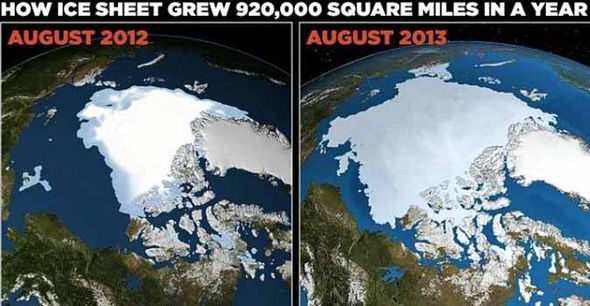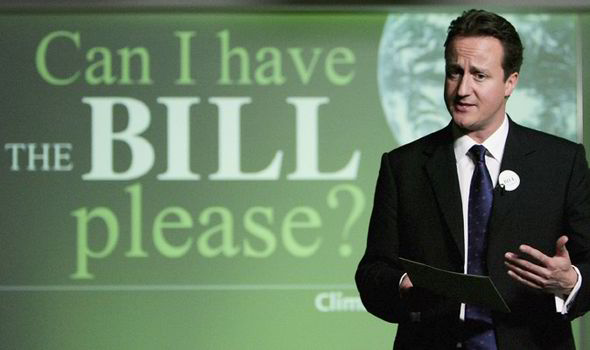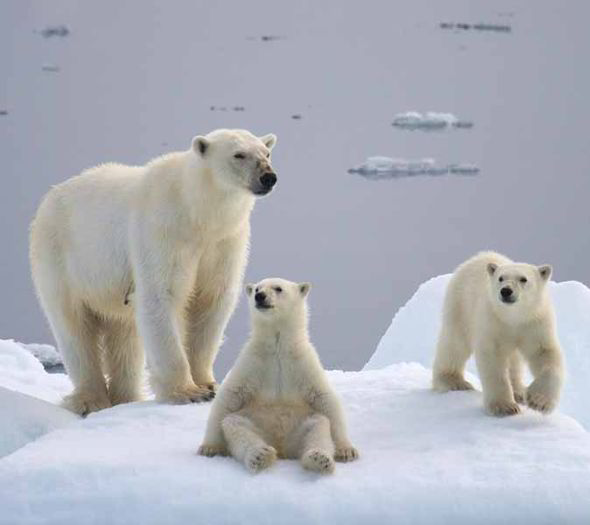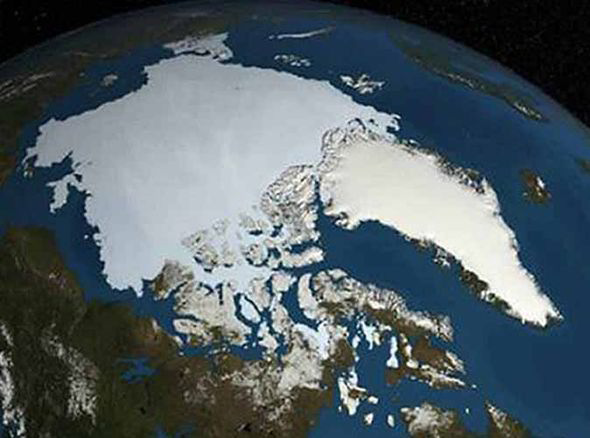SEA ICE - FEWER BELIEVE IN GLOBAL WARMING
What climate change? Fewer people than EVER believe the world is really warming up
CLIMATE change scepticism is rapidly increasing in the UK with a FIFTH of people now unconvinced the world's temperature is changing.
![An iceberg melts off Ammassalik Island in Eastern Greenland [AP] An-iceberg-melts-off-Ammassalik-Island-in-Eastern-Greenland-AP-](http://images.dailyexpress.co.uk/img/dynamic/1/590x/iceberg-430649.jpg) An iceberg melts off Ammassalik Island in Eastern Greenland [AP]
An iceberg melts off Ammassalik Island in Eastern Greenland [AP]
The number of people who do not believe climate change is real has increased by 400% since 2005
A report from the UK Energy Research Centre also shows the number of those who resolutely do not believe in climate change has more than quadrupled since 2005.
The Government funded report shows 19 per cent of people are climate change disbelievers - up from just four per cent in 2005 - while nine per cent did not know.
The report comes as climate change scientists working on a landmark UN report on climate change are struggling to explain why global warming appears to have slowed down in the past 15 years even though greenhouse gas emissions keep rising.
Dr. Roy Spencer, a former NASA scientist and author of Climate Confusion, argues in his influential blog the UN report shows scientists are being forced to "recognise reality".
He said: "We are now at the point in the age of global warming hysteria where the IPCC global warming theory has crashed into the hard reality of observations."
Green Party leader Natalie Bennett blamed the Government for the increase in climate change doubters.
She said: "When the government is so clearly failing to act on climate change, or take seriously its obligations under the Climate Change Act, it's not surprising that the level of doubt about climate change has risen.
"Of course, however, the 72 per cent of the public who acknowledge the climate is changing are backed overwhelmingly by the scientific evidence.
"The US National Oceanic and Atmospheric Administration concluded that half of last year's extreme weather events around the world were in part caused by climate change.
"With massive floods in Colorado and Mexico in the grip of flood disaster, we're reminded that the forces of nature have huge force that we must not continue to magnify."
 The ice sheets have been cooling not mealting as climate change experts would lead us to believe
The ice sheets have been cooling not mealting as climate change experts would lead us to believe
 David Cameron launches the 'Can I have the Bill please?' campaign in 2006 [GETTY]
David Cameron launches the 'Can I have the Bill please?' campaign in 2006 [GETTY]
The report comes as climate change scientists working on a landmark U.N. report on climate change are struggling to explain why global warming appears to have slowed down in the past 15 years even though greenhouse gas emissions keep rising.
Leaked documents obtained by The Associated Press show there are deep concerns among governments over how to address the issue ahead of next week's meeting of the Intergovernmental Panel on Climate Change (IPCC).
Climate skeptics have used the lull in surface warming since 1998 to cast doubt on the scientific consensus that humans are warming the planet by burning fossil fuels and cutting down CO2-absorbing forests.
The IPCC report is expected to affirm the human link with greater certainty than ever, but the panel is under pressure to also address the recent lower rate of warming, which scientists say is likely due to heat going deep into the ocean and natural climate fluctuations.
 Are the ice sheets really melting at an unusual rate?
Are the ice sheets really melting at an unusual rate?
"I think to not address it would be a problem because then you basically have the denialists saying, 'Look the IPCC is silent on this issue,"' said Alden Meyer, of the Washington-based Union of Concerned Scientists.
In a leaked June draft of the report's summary from policy-makers, the IPCC said the rate of warming in 1998-2012 was about half the average rate since 1951. It cited natural variability in the climate system, as well as cooling effects from volcanic eruptions and a downward phase in solar activity.
But several governments that reviewed the draft objected to how the issue was tackled, in comments to the IPCC.
Germany called for the reference to the slowdown to be deleted, saying a time span of 10-15 years was misleading in the context of climate change, which is measured over decades and centuries.
Related articles
- Anti-fracking campaigners are 'scaremongering', claims Environment Secretary
- 'Don't let Ukip isolationism ruin Britain', Nick Clegg tells Liberal Democrat conference
- The end of the world? Not for 3.5billion years...
- Taxpayers fork out £4.6million on replacing Government air conditioning to appease EU
 A German climate scientist has claimed some authors have felt pressured to address global warming
A German climate scientist has claimed some authors have felt pressured to address global warming
The U.S. also urged the authors to include the "leading hypothesis" that the reduction in warming is linked to more heat being transferred to the deep ocean.
Stefan Rahmstorf, a German climate scientist, said it was possible that the report's authors were feeling pressured to address the warming slowdown because it's received so much attention recently.
"I think a lot of the interest in this topic in the science community has been triggered by the public debate about it," said Mr Rahmstorf, who was a reviewer for the report's chapter on sea levels.
Jonathan Lynn, a spokesman for the IPCC, declined to comment on the content of the report because it hasn't been finalised, but said it would provide "a comprehensive picture of all the science relevant to climate change, including the thousands of pieces of scientific research published since the last report in 2007 up to earlier this year."





